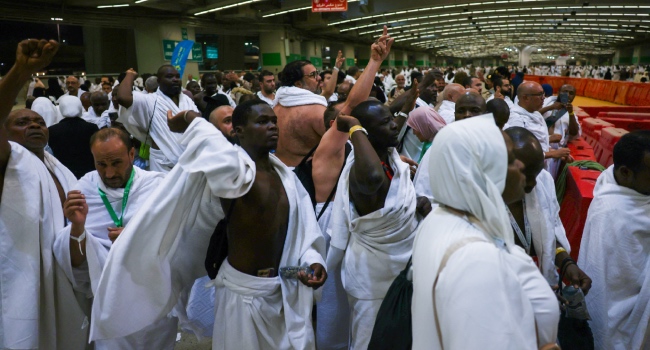On the fourth day of Hajj, Nigerian pilgrims, alongside nearly two million Muslims worldwide, continued the symbolic stoning of the devil at the Jamarat complex in Mina, Saudi Arabia. This ritual, known as “Ramy al-Jamarat,” is a pivotal act of the annual pilgrimage, commemorating Prophet Ibrahim’s (Abraham) rejection of Satan’s temptations as he prepared to sacrifice his son in obedience to Allah’s command.
Under the scorching heat of 46°C (114°F), pilgrims threw seven pebbles at each of the three pillars—Jamarat Al-Sugra (small), Jamarat Al-Wusta (middle), and Jamarat Al-Aqaba (largest), in a calm and orderly manner. The Jamarat complex, a five-level structure designed to accommodate over 300,000 pilgrims per hour, was equipped with advanced monitoring systems to ensure smooth movement and prevent congestion. Security personnel, health workers, and volunteers were stationed throughout the area to maintain order and provide assistance.
Despite the extreme temperatures, Saudi authorities took measures to protect pilgrims from heat stress. Water stations were set up, and pilgrims were advised to perform the ritual during cooler hours to minimize health risks. In previous years, similar precautions have been implemented, including temporary suspensions of the ritual during peak heat hours.
After completing the stoning ritual, pilgrims returned to their accommodations in Mina to rest and prepare for the next phase of the pilgrimage. Many opted to leave Mina before sunset on Tuesday, taking advantage of the option to conclude their pilgrimage early. The final rites include the Farewell Tawaf (Tawaf Al-Wida) at the Grand Mosque in Mecca, marking the conclusion of Hajj.
The Hajj pilgrimage, one of the five pillars of Islam, is an obligatory act for Muslims who are physically and financially able. It serves as a profound spiritual journey, fostering unity and devotion among Muslims worldwide. As the pilgrimage draws to a close, Nigerian pilgrims, along with others, reflect on the significance of the rituals performed and the sense of fulfillment achieved through their devotion.

